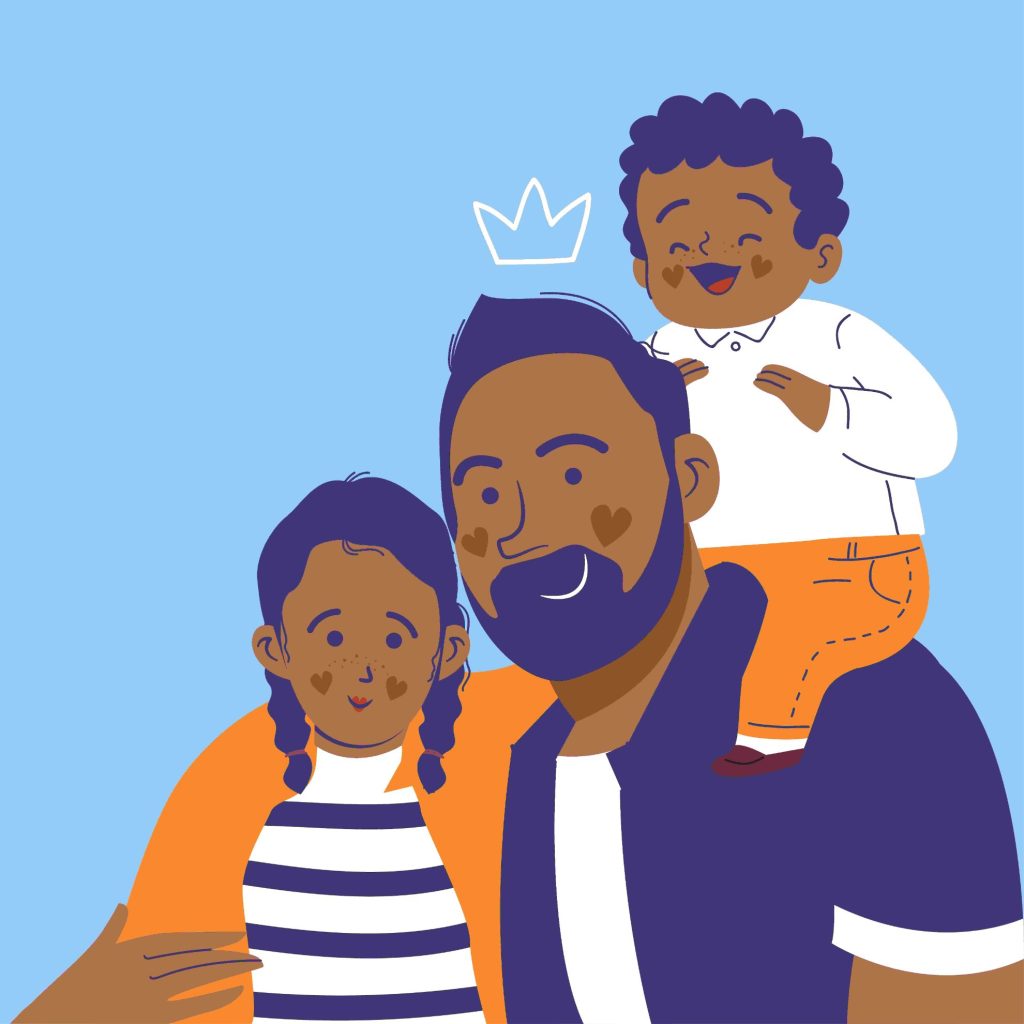THE GOLDEN RULE
M Joosten
Head of Foundation Phase

In 1954 Dr Seuss published his beloved children’s book “Horton Hears a Who” where we find one of the characters telling his friends that, “A person is a person no matter how small.” This book was published 9 years after the end of WWII during a time when the world was filled with hatred and ethnocentrism (one race is considered superior to another). Dr Seuss had an urge to teach children, the leaders of the future, that everyone deserves to be treated with respect, no matter how different they are.
Today we find that once again, 70 years later, our children are being raised in a culture where hate and ethnocentrism are fashionable. If we do not teach our children differently, we will find them being swept away by the ‘woke’ ideology right in front of our eyes. How can our children learn to do it differently?
As Christians, God has given us His word to instruct us in life – in the way we ought to treat others. In his first letter to the believers, Peter wrote: “…Honour one another above yourselves.” If we train our children under God’s word and remind them daily how God wants them to live as His children, they will learn to respect each other. But before we can teach our children what respect is, we need to model respect in our homes through the way we act and speak. We need to remind our children that no matter how different people are, God created every person in His image for a unique purpose.
Jesus summarised the whole law into one simple command: “So in everything, do to others what you would have them do to you.”
Sources: 10 Powerful Bible Verses about Respect: Honoring God and Others | betteryouliving
A Person’s a Person No Matter How Small and the Smallest Among You’s the Greatest of All | by Robin Bolen Anderson | Medium
THE FATHER’S ROLE IN A CHILD’S LIFE
E Gouws
Head of Intermediate Phase

According to the Human Sciences Research Council, most South African children — over 60% — do not live with their biological fathers. And 20% only have contact with their biological fathers twice a week. The reasons for this are challenging and extremely complex. Absent fathers can cause childhood wounds that never heal and continue into adulthood. Many men who are absent fathers had absent fathers themselves. Since they never experienced the advantages of a present male figure, they don’t know what the advantages are or how to pass them on.
An absent father may be a father who is not physically present in his family or one who is present but emotionally detached.
How can a child be wounded by his/her father?
Through neglect. Being present is not a priority for the father. Friends, hobbies and work
are more important.
Through financial constraints. If fathers cannot support their families, their role is called
into question. Money is necessary for a home, but children want their parents’ time:
someone to play with them, to read to them, to share in their thoughts, fears and dreams.
Being present, even if there are financial difficulties, is important.
Through absence due to divorce, separation or death.
Through abuse. Fathers may cause mental, physical, sexual and spiritual abuse.
Through withholding. Fathers may withhold love, blessings and/or affirmation from their
children which lead to a profound lack of self-acceptance.
Children wounded by their fathers generally experience low self-esteem and deep emotional pain which can have disastrous effects in the long term.
Positive father figures share the weight of parenthood and enhance their children’s physical, mental and emotional well-being in meaningful ways. Fathers need to be positively involved and present. Children need fathers who are present, not perfect. Children would rather have fathers who are less than perfect, but who spend time being with them. Years from now, children won’t remember if all the dishes had been done but they will remember the times they spent together and how it brought joy to their hearts. Fathers are vital to their children.
Sources: https://www.dailymaverick.co.za/opinionista/2023-06-14-its-fathers-day-but-south-african-society-suffering-profound-absence-of-father-figures
https://www.focusonthefamily.com/parenting/kids-desire-our-presence-not-our-perfection
https://www.drrachelglik.com/blog-posts/2016/3/2/hope-for-healing-the-wound-of-an-absent-father
THE INESCAPABLE WORD
Mrs N Ngubane
Head of Senior Phase

A balanced diet, a balanced personality, balanced emotions, balanced equations, balanced lifestyle and more. We can’t seem to escape this word.
Even learners cannot escape it. In languages they must learn four skills equally well to ensure a balanced knowledge of the language. In science they must balance equations. In commerce they must find the balance, either by doing a balance sheet or calculating an equilibrium where a company will start making profit.
Regardless of the subject, the learners need to apply the four concepts of division, subtraction, addition and multiplication to ensure balance. How wonderful it is when they have mastered this skill. They can deal with any question because they will be able to apply their mastered skill.
Where do we fit in?
As learners strive to master their skills, we must assist them by using the same principles that they are using.
Division (÷)
Let us divide our attention equally so that our children feel contented when they are with us, they know they are in safe hands and getting all they need. This applies to teachers and parents. A game of seesaw will not work here. Our care and consideration need to be equally divided for the sake of the child.
Subtraction (-)
Our children imitate what they see and hear so we need to be good role models. Let us talk positively about one another and get rid of any habit that may negatively impact our children’s well-being.
Addition (+)
To add burdens of fear, doubt, criticism, gossip, anger, self-pity, greed or hatred will cause the equation to fail. However, adding the values of respect, self-discipline, loyalty, kindness and watchfulness will keep the equation well balanced.
Multiplication (×)
Frank Sonnenberg said, “Lessons in life will be repeated until learned”. If our children find that the same principles which are encouraged at school are also taught at home, the equation will balance. Reinforcement will simply multiply the best results in our children.
Why balance after all?
Balance implies steadiness, ensuring something will not fall. Don’t we want to raise a stable nation, one that will not be ‘lopsided’? That is why we all need to be involved in inculcating this balance in our youngsters. As the Zulu saying goes, ‘izandla ziyagezana’. We need one another to protect our precious but vulnerable children.
Sources: Balance definition: https://www.collinsdictionary.com/dictionary/english/balance
Frank Sonnenberg’s quote: https://www.goodreads.com/quotes/9605348-lessons-in-life-will-be-repeated-until-they-are-learned
CREATING HAPPINESS
Head of FET Phase
Mr D van Straten

“When it doesn’t go well with you, it doesn’t go well with me.”
These words, perhaps spoken quickly or thoughtlessly, reveal a truth worth deep reflection.
As a teacher, my emotions affect my learners, and as a parent, they influence my children. A little bit of irritability, a heavy heart, or feeling tired or unwell can dampen my enthusiasm, collegiality, and communication. On the other hand, feeling happy and on top of the world has the same impact, but in a miraculously different and uplifting way.
This brings to mind the words ‘contagious’ and ‘resonance.’ Contagious implies that your happiness can spread to others, uplifting their mood and creating a positive atmosphere. Resonance suggests that your happiness can affect others, creating a shared emotional experience. In psychology, this phenomenon of emotions spreading from one person to another is known as ‘emotional contagion.’
In a 2012 Facebook experiment, researchers showed some users more positive posts and others more negative ones, aiming to observe how this would affect their emotions. The study confirmed that people’s emotions may be influenced by what they see online, leading them to post content, reflecting the emotions they are exposed to. Other studies have shown similarly interesting results.
A 1982 study by Elaine Hatfield et al found that people unconsciously mimic other people’s facial expressions, tones, and postures, resulting in shared emotions. In 2008, Fowler and Christakis discovered that happiness that spreads through social networks, affects people up to three degrees of separation – if one person becomes happier, their friends, their friends’ friends, and even their friends’ friends’ friends are likely to become happier too.
Domino Servite School is committed to creating a happy…environment
Considering Domino Servite School’s vision to create happiness, rooted in Bible-based moral values, it is the duty of every teacher and parent to have a joyful heart, which leads to a cheerful face, which is like good medicine. We are called to build one another up and to be joyful. However, in this context, emotional contagion is more than a psychological perspective; it becomes a reality only when we are willing to rise above feelings of irritability, sadness, or fatigue. It requires living beyond our circumstances to make our classrooms and homes truly happy places – by being happy ourselves.
Source: The AI assistant. 2024. ChatGPT Date of access: 22 August 2024
IN CASE YOU’RE STILL IN DOUBT
Academic Head
Mrs G Geldenhuys

Domino Servite School’s total ban on cell phone usage during school hours is becoming more and more popular across the world as various reports suggest.
According to The Standard 8 July 2024 (a British publication):
Eton has become the latest school to ban smartphones for new pupils as concerns grow over their impact on mental health and behaviour.
(Parents of children aged 13 and 14 attending the £49,000 per year school have been informed of the change, which will take effect in September.)
From September, the school will issue boys with a Nokia handset that is not connected to the internet and can only be used to make calls and send texts.
Eton’s decision comes amid a wave of private schools moving to ban smartphones.
Recently the decision by a television personality who allowed her 15-year-old son to travel alone across Europe by rail created an uproar, however safeguarding experts and child psychologists have said the risks to teenagers are increasingly “far greater” online at home than when travelling independently.
A child safeguarding consultant, Simon Bailey, told the Guardian: “The risk is far greater with a child up in their bedroom with access to a smart device than it is travelling to Berlin, Munich and seeing some of the wonderful sights that Europe provides.”
Recent research by Childlight Global Child Safety Institute found that more than 300 million children around the world face sexual exploitation and abuse online each year. Bailey said the findings should “send cold shivers down every parent’s spine” and that they should be more focused on managing these risks.
The government in South Australia banned phones from school in 2023 and immediately the number of physical fights between children dropped.
UNESCO, the United Nations education body, urged countries around the world to ban smartphones in 2023 already. The scary results of an international study found that children between the ages of eight and 12 spend up to five and a half hours looking at screens per day – be it a phone, laptop, PC or tablet (and these hours are only for social media, gaming and texting).
So yes, the DSS ruling on cell phone usage is bang on trend. However, what about your child’s cell phone usage at home? Hopefully the above information will encourage you to extend this ban to your home environment as well.
Sources: Eton pupils to swap their smartphones for offline Nokias from next term | Evening Standard
https://htxt.co.za/2024/05/should-smartphones-be-banned-at-south-african-schools
